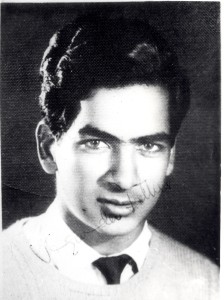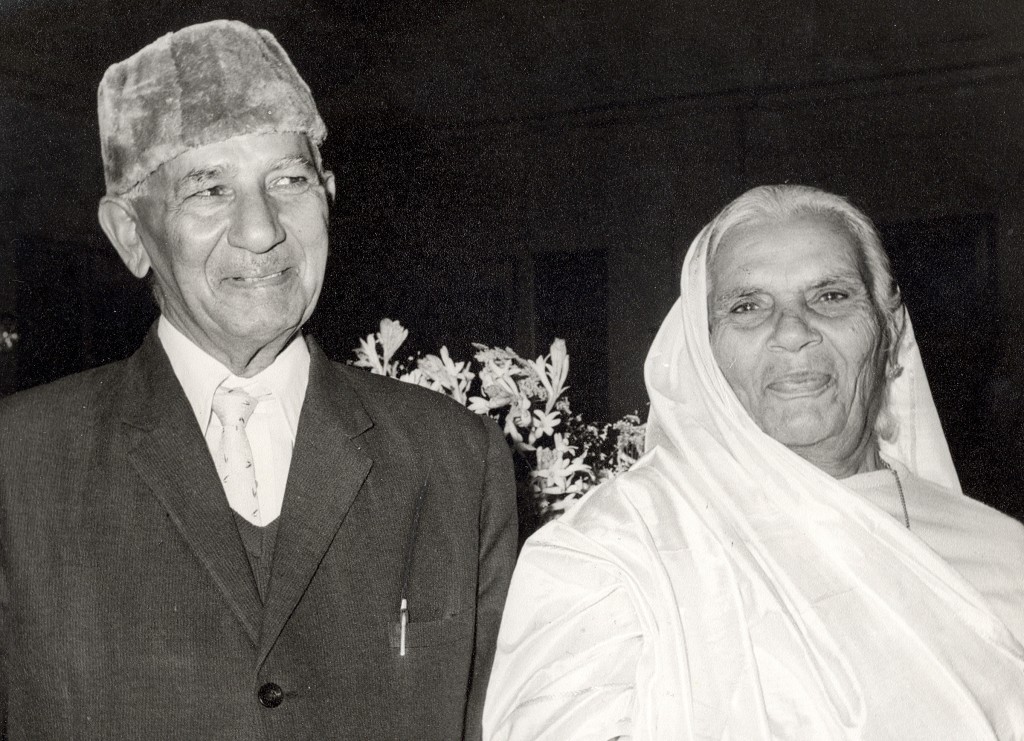By Juginder Luthra, Weirton, WV
e-mail:Â dolgin1968@gmail.com
Editor’s Note: Very often people realize their unfulfilled dreams — unfulfilled on account of the combination of several factors beyond their control — through the accomplishments of their children. No wonder in Sanskrit one expression for son is Atmaja, literally meaning “born out of oneself.†So, people see extensions of themselves in their children. Often, parents recount how they realized their dreams through their children. However, when a son recounts how he has been living his father’s dreams, the impact is very different. Here are Juginder Luthra’s recollections on his becoming a physician. He is close to retirement after practicing ophthalmology in Weirton, WV.
There was a flurry of activity all over the house. “Is the suitcase ready, did you pack enough mango pickle and praanthe with cooked dry potatoes placed between them? Are your shoes polished, do you have enough money for the journey? Do you have Dr. Chitkara’s (Pitaji’s cousin) address where you will be staying for the first 3 or 4 days?â€
The last one was planned to avoid the notorious, scary ritual of ragging, called hazing in the US, that every new student received from seniors.
“Make sure your shoes match; one black and one brown will look really funny. Don’t stick your head out of the moving train, you will get coal particles fly into your eye. Above all, no more mischief; you are a big boy now.â€
Questions and advice were coming from every corner and everybody. Mataji (as my siblings and I called our mother), with tears in her eyes and sniffling, said haltingly with a raspy voice, “Make sure you eat properly; I will not be there running after you with butter-soaked praanthe and your favorite bhindi and karele.†She kissed my forehead. Our tears mingled.
What was the fuss and occasion for all this hoopla in September, 1961 at house number 2, Model Town, Panipat, 50 miles north of New Delhi?
I was on my way out of the house at the age of 17, alone, and plunging into the large strange world. I grew up with the luxury of being sheltered by my mother, brothers, sisters, and Dadaji (paternal grandfather). And my father, who was mostly physically absent but in spirit always around.
After the Partition of India in 1947 and our arrival in India as refugees from what now had become Pakistan, the responsibility of supporting the large family was on Pitaji (Father). Money earned from the newly learned trade of making bricks was never enough. First, the eldest son, Suraj, followed next by Prem and then Virinder got jobs and supplemented his meager income. All of this combined money was barely enough to cover the basic needs of shelter and food. Mr. Kundan Lal Luthra, my father, recognized from his own personal experience that education was as essential as food. Educating his children was the main goal of his life.
Eleven boondi laddoos had been distributed as gifts to all the neighbors, appropriate donations had been made to the needy woman, Brahmni, who visited us weekly to receive money and food for her recently uprooted family. Ganesh, the Remover of Obstacles, had been invoked with indecipherable mantras. Proper blessings had been received from the family Gurus — Swami Satya Nandji and Shakuntla Behanji.
It, indeed, was a big occasion for the family and above all for Pitaji. I was the first child going to medical college, and hopefully becoming the first doctor in our family. The six older siblings had become engineers, businessman, and teachers. The one younger than me, the last one of the eight siblings, had declared his intentions of becoming an engineer.
I also had wanted to become an engineer — because I hated blood! In hindsight, what a foolish reason it was; but at that age, it was a major reason for me to join 2-year pre-engineering courses after high school. I had already attended pre-engineering classes for three months in 1959 at Government College, Rupar, Punjab.
A two weeks All India tour for me arranged through the college, gave Pitaji the window of opportunity to change the course of my life. In my absence, he went to the college, cancelled my physics and math classes and entered my name into botany and zoology. He also arranged evening tuition and extra classes to make up for lost time.
He was happy that I did not object and quietly followed the path carved out by him. I have been, forever, thankful for his foresight. We learned later that there was a whole different dimension to this action. It was a moment of fulfillment of a long, hibernating dream for Pitaji, the architect of education for the whole family.
Kundan Lal, my father, was one of two sons of Lala Gokul Chand. In the early 1900s Lalaji had been gifted ten acres of land in Khanewal (near Multan in Pakistan) by his British officer. Kundan’s younger brother, Karam Chand, was meant to take over the farming. Kundan loved to help people. What better way to serve than to become a doctor, was his thinking. With this goal in mind, Kundan studied pre-medical courses in Dayanand College, Lahore. He completed the prerequisite courses, and earned more marks than required to ensure admission in the prestigious Medical College, Lahore.
Much to Kundan’s disappointment, a Muslim boy with lesser marks, was given his spot due to the quota system then in practice. Not one to be defeated and give up, Kundan continued his studies, completing B.Sc. to definitely ensure admission to the medical college in the following year. His decisions and academic performance were on track.
But no one can foresee or predict the Hand of Destiny. What is not meant to be will not be, despite all our effort. You can come up with all descriptors — defeatism, a rational defense mechanism of acceptance, ingrained deep faith in Destiny, or Will of God as has been the Hindu way of looking at life’s transitions.
Those days, infectious diseases were common causes of death in all age groups. Kundan’s younger brother, Karam, fell victim to one such disease and died as a result. Their mother died shortly thereafter. Lalaji, Kundan’s dad, summoned Kundan back from Lahore to Khanewal to look after the land. His pleas to let him continue the education fell on deaf ears. One could cry and make a scene, but in those days one dare not refuse the dictates of the family elders. Such was the culture of that era (circa 1925).
Kundan Lal, the budding doctor, overnight became doctor of the crops. And what a farmer he became! Farmers from all around Khanewal sought his advice on all aspects of farming.
However, the suppressed, dormant and hibernating seed of becoming a doctor never died in him. One day it had to sprout.
He must have seen something in me akin to himself and saw a doctor in me serving humanity.
That is how my pre-engineering studies became pre-medical. After getting sufficient grades, I got selected into Medical College, Amritsar, nearly 250 miles from Panipat and only 20 miles away from Lahore, Pakistan.
I was finally ready to embark on the daunting, lonely journey to Amritsar on a newly started train, the Flying Express. After the flurry of activity at home, good byes, tight hugs and tears, Pitaji escorted me to the train station. The train, as usual, was running late.
He would not talk much, but looked at me with his usual style of tilted head with a slanted gaze, a tear building up in the corner of his eyes. He carefully wiped it by the same motion as if he was straightening his hair, hoping the train would be a little more delayed.
A loud whistle, a down green signal, and the plume of smoke from the steam engine fueled by coal far away, broke Pitaji’s trance. Overhead speakers announced the arrival of the train that would take his son away to finally fulfill Kundan Lal’s long cherished dream. The tears he held back could not be subdued any longer; a mixture of joy and sorrow moistened my cheeks and collar as he gave me a tight reassuring hug.
The train rolled out gently. His blessings to serve people, and become as good a doctor as he had dreamt to be, kept following me through his loving gaze, gradually fading smile and waving of his hands. Â Â Â Â The End


